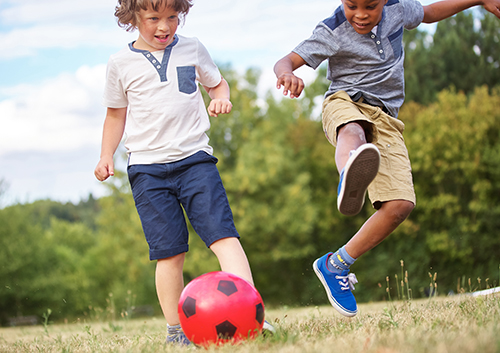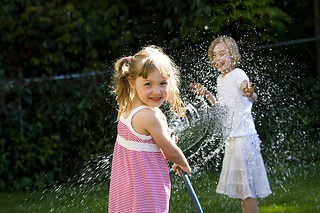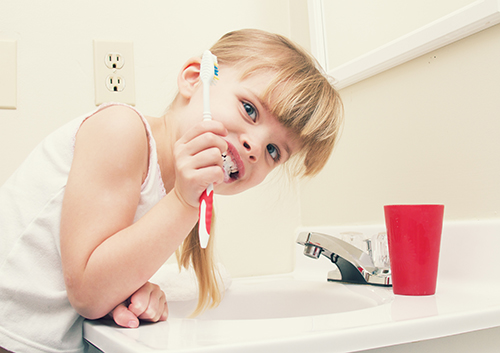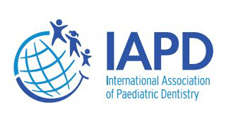Summer Dental Health? Get into the Swim of It!
July 5th, 2023

On a sizzling hot day, there’s not much that makes us happier than heading to the water for a quick swim, some gentle laps, or even a rousing game of water polo. And this being a sizzling hot dental blog, we are happy to offer some tips on how to make your summer swim good for your dental health as well as your mental health!
- Mouthguards
You might use your mouthguard all the time—for biking, or basketball, or skiing. But in the pool? Absolutely! Anyone who has played water polo knows what a physical workout it is. Elbows! Hard tosses! Collisions! And it’s not just pool sports. Water-skiing on the lake, surfing in the ocean—anywhere humans and solid objects are involved, tooth and jaw injuries are possible. Don’t spend valuable summer hours tending to a cracked or broken tooth as a result of sports accidents.
And, unlikely though it seems, even hanging by the pool can be hazardous to your smile. Hard concrete edges wait to greet surfacing divers. Slippery cement and tiles surrounding the pool are the downfall of many a swimmer running to jump back into the water. Be aware of possible dental dangers, and use a mouthguard as a great proactive way to avoid them.
- Swimming Pools & Chlorine
Ah, the smell of chlorine! We all want to know that swimming pools are as clean as they can be, and one method of keeping them that way is with the addition of antimicrobials to the water. But too much exposure to chemicals can cause enamel erosion, or even a condition called “swimmer’s calculus.” Swimmer’s calculus is recognized by a hard, brownish, tartar deposit that appears on the front teeth of swimmers who spent a lot of hours in the pool. It’s a cosmetic problem, but one that’s difficult to get rid of without a professional cleaning. If you’re a competitive swimmer, or simply someone who spends many hours a week in treated water, give us a call if you notice hard-to-remove discoloration or tooth sensitivity.
- Retainers
Different people have different opinions on whether or not your retainer should be exposed to the chlorine in pool water. (Or the salt in saltwater or the bacteria in lake water.) Ask us for ours! But you’re best off leaving it in your bag or locker, anyway, because retainers can be easily lost in the water. They might be able to survive a swimming pool, but a lake or ocean rescue is very unlikely. Just remember to put your retainer in a case, in a safe spot, and replace it when you’re out of the water for the day.
Enjoy your time on the water, and don’t forget to schedule an exam with Dr. Dinah Abioro and a professional cleaning if you haven’t been in the office for a while. If you do have a dental problem or an accident, give our Bowie office a call immediately. We want to make sure you dive in to summer fun with a healthy, beautiful smile!








